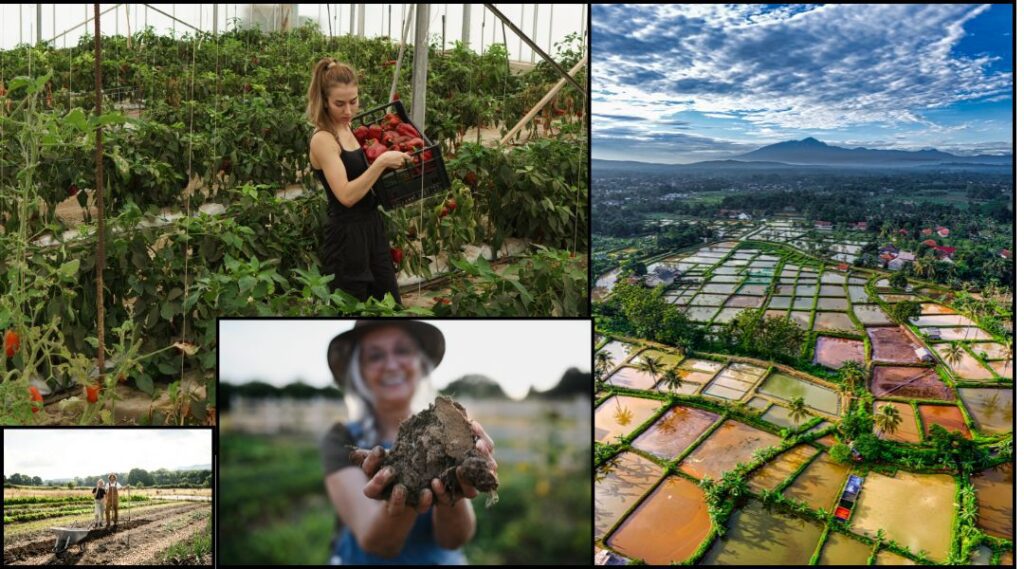
Innovative advancements in materials science have revolutionized agricultural practices, with the integration of infrared radiation blocking nano composites emerging as a game-changer in enhancing crop productivity and sustainability. These cutting-edge materials, leveraging nanotechnology, offer a myriad of benefits in optimizing environmental conditions within agricultural settings, particularly in greenhouse cultivation.
One prominent figure in the field of nanotechnology and its application in agriculture is Dr. Qilin Li, an esteemed researcher and professor known for her work on nanomaterials for sustainable agriculture. As the leader of various research initiatives and collaborations with industry partners, Dr. Li plays a pivotal role in advancing the frontier of nanotechnology in agriculture and translating scientific discoveries into practical solutions for farmers worldwide.
Table of Contents
Infrared Radiation-Blocking Nanocomposites
Another notable figure in the development of infrared radiation blocking nano composites is Dr. Yi Cui, a professor of materials science and engineering at Stanford University. Dr. Cui’s research focuses on nanomaterials for various applications, including energy and environmental sustainability. He and his team have made significant contributions to the field of nanotechnology, including the development of novel materials for thermoregulation and energy efficiency. Their work has advanced our understanding of nanoscale phenomena and paved the way for practical applications in agriculture, architecture, and beyond.


Unveiling the Technology:
Infrared radiation blocking nano composites are engineered materials composed of nanoparticles embedded within a matrix material. These nanoparticles possess the remarkable ability to selectively absorb or reflect infrared radiation, which is primarily responsible for heat transfer. By effectively managing infrared radiation, these composites regulate the thermal environment within greenhouses, ensuring optimal conditions for plant growth while mitigating excessive heat accumulation.
Enhanced Thermal Regulation:
One of the primary advantages of employing infrared radiation blocking nano composites in agriculture is their ability to regulate temperature fluctuations within greenhouse structures. During periods of intense sunlight, these materials intercept and reflect infrared radiation, preventing overheating and reducing the need for excessive ventilation or cooling systems. Conversely, they act as insulators during colder periods, minimizing heat loss and maintaining consistent temperatures conducive to plant growth.
Optimized Crop Performance:
The utilization of these advanced materials translates into tangible benefits for crop cultivation. By maintaining optimal thermal conditions, infrared radiation blocking nano composites create a conducive environment for photosynthesis and metabolic processes, fostering enhanced plant growth and development. Additionally, the controlled environment minimizes stress on plants, resulting in improved resistance to pests, diseases, and environmental fluctuations.
Resource Efficiency and Sustainability:
Incorporating nano composite technology in agriculture aligns with the overarching goal of sustainable food production. By reducing the reliance on conventional heating and cooling methods, these materials promote energy efficiency and minimize carbon emissions associated with agricultural operations. Furthermore, the enhanced crop yields facilitated by optimized environmental conditions contribute to food security and resilience in the face of changing climate patterns.
Diverse Applications and Future Prospects:
Beyond greenhouse cultivation, the applications of infrared radiation blocking nano composites extend to various aspects of agriculture. They can be integrated into protective films for field crops, promoting early-season growth and providing insulation during inclement weather.Infrared radiation blocking nano composites are used extensively in various agricultural settings, including:
Greenhouse Cultivation:
These materials are commonly integrated into greenhouse films or covers to regulate temperature and create optimal growing conditions for crops.
Protected Agriculture:
In regions with extreme climates or limited arable land, infrared radiation blocking nano composites are utilized in protected agricultural structures such as high tunnels and hoop houses to extend the growing season and enhance crop yields.
Vertical Farming facilities:
Indoor farming operations, including vertical farms, utilize these materials to maintain controlled environments and maximize space efficiency for year-round crop production.
Agricultural textiles:
Nano composite-based fabrics are employed in agricultural textiles such as shade nets, row covers, and ground covers to provide thermal insulation and protect crops from adverse weather conditions.
Precision agriculture:
In precision agriculture applications, infrared radiation blocking nano composites may be incorporated into sensors or smart materials to monitor environmental parameters and optimize crop management practices.
Hydroponic and aquaponic systems:
These materials can be utilized in hydroponic and aquaponic systems to regulate water temperature and prevent heat stress on plants grown in soilless environments.
Research institutions and universities:
Research institutions and universities involved in agricultural research often utilize infrared radiation blocking nano composites in experimental setups to investigate their effects on crop growth, resource efficiency, and environmental sustainability.
Overall, the widespread adoption of infrared radiation blocking nano composites underscores their versatility and effectiveness in improving agricultural productivity while minimizing environmental impacts.
The growth rate of infrared radiation blocking nano composites in agriculture is steadily increasing as researchers and industries recognize their potential benefits. With ongoing advancements in nanotechnology and materials science, coupled with the pressing need for sustainable agricultural practices, the adoption of these innovative materials is expected to accelerate in the coming years. Factors such as climate change, resource scarcity, and the demand for higher crop yields are driving the exploration and implementation of novel solutions like nano composites to address these challenges. As more research is conducted and commercial applications are developed, the growth rate of infrared radiation blocking nano composites in agriculture is poised to expand, contributing to more efficient and sustainable food production systems globally.
Conclusion:
Infrared radiation blocking nano composites represent a paradigm shift in modern agriculture, offering a sustainable solution to optimize crop growth and resource efficiency. As the global population continues to expand, harnessing the potential of these innovative materials is essential for ensuring food security, mitigating climate change impacts, and fostering a more resilient agricultural ecosystem. Through continued research and technological innovation, the integration of nano composite technology will play a pivotal role in shaping the future of farming practices worldwide.
The upcoming AgriNext Awards,Conference & Expo Will be a gathering of leading experts, innovators, and stakeholders in the agricultural industry. It promises to be an insightful event featuring keynote speeches, panel discussions, and networking opportunities.Join us as we embark on a journey of discovery, collaboration, and forward-thinking at AgriNext Awards, Conference & Expo.
Signup For AgriNext Conference Newsletter

